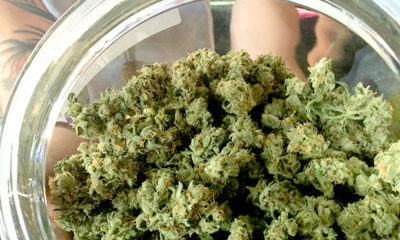Medical
Anxiety Conditions Rarely Covered Under Medical Marijuana Laws
Anxiety disorders affect over 40 million adults in the United States, nearly 20 percent of the entire population. About half of those with the diagnosis are taking one or more physician-prescribed pharmaceutical medications to cope. Americans spend over $2 billion every year on anti-anxiety medications and rack up over $40 billion in anxiety-related medical bills.
Many medical marijuana laws only recognize physical ailments and tend to overlook the multitude of mental disorders cannabis can help regulate. Not only can medical cannabis help people with their anxiety, it can also alleviate the root conditions causing or caused by anxiety.
Many anxiety medications have dramatic lists of side effects, including feelings of inebriation, drowsiness, clumsiness, impaired judgment, memory loss, nausea and slurred speech. More severe side effects include damage to fetuses, infertility, problems breast-feeding, suicidal thoughts and tendencies, seizures and tumors.
“It had gotten to the point where I was lying to my doctor about taking my medication. I was supposed to be taking Klonopin, but I hated it. I was doing poorly at my job, oversleeping, always confused. Often times, it made me vomit. Eventually, I decided it would be better to feel overly-anxious than to be a non-functional zombie,” says Breanne*, a college student diagnosed with anxiety.
“I can’t give you absolute numbers, but the percentage is close to 50 percent who complain of symptoms of anxiety or panic [as a result of pharmaceutical medications], “ says Steven Watson, a licensed clinical social worked (LCSW) specializing in anxiety and post traumatic stress (PTSD) disorders, “I would suggest exploring medications to 20 percent of the clients with primary anxiety issues. I also strongly suggest they continue with therapy and have a long term goal of going off medications.”
When asked about medical marijuana as a treatment for anxiety, Watson says if individuals were already familiar with the plant’s effects, he would support its use for anxiety.
“I am in favor of what works,” he says.
Raymond* says “I feel like if I was to go to a doctor, I could get a prescription for some sort of drug to alleviate my social anxiety. I don’t trust synthetic drugs, because they dramatically affect a brain’s chemistry.”
In fact, after long-term usage of anxiety medication, patients are recommended to taper off the medications because abrupt discontinuation is known to cause even more health problems.
Although 22 states have legalized cannabis for medical use, a diagnosis of anxiety, although considered chronic, is rarely qualifying under most state laws.
PTSD, the most common form of anxiety in the U.S., is the only anxiety disorder explicitly qualifying in any state’s legislation. Currently only Maine, Oregon, and New Mexico have made that inclusion. Research has shown that marijuana helps with, “extinction of bad memories and growth of new brain cells (neuro-genesis),” which proves effective for patients suffering from PTSD.
Lack of medical marijuana coverage doesn’t decrease the prevalence of anxious Americans seeking treatment. Programs are set up to help patients move—fully uproot their lives—to receive medical marijuana in states that cover their condition.
When asked why she chooses to use marijuana as an aid against anxiety, Breanne said, “If I take one to two hits in the morning, I feel like I’m waking up on the right side of the bed. I take another one before bed, combined with some meditation. I am never, by any means, stoned—always just relaxed. Over all, I’d say I’m a completely different person because I stopped taking prescriptions.”
Conventional medications change brain chemistry; marijuana opens the mind to new thoughts. Over time, one can learn to deal with anxiety, rather than chemically mask it.
*Indicates names have been changed to protect anonymity.






















